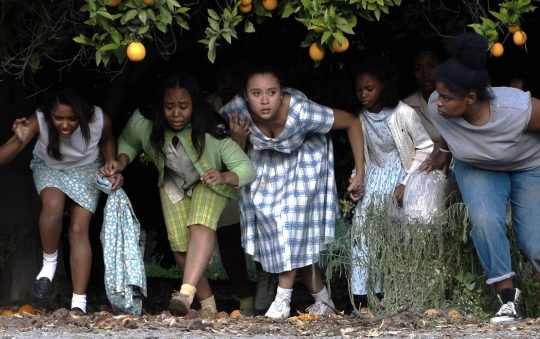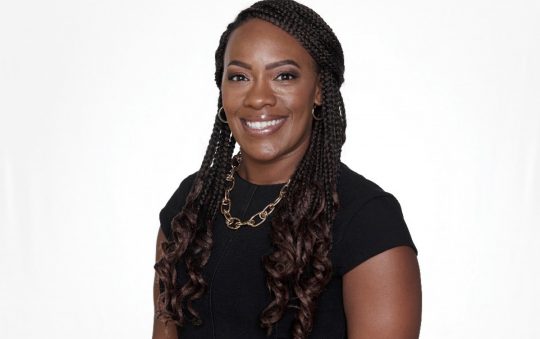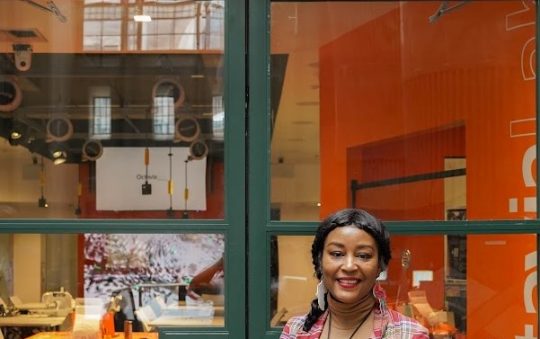
The theme for this Black History Month is “African Americans and Labor” and it immediately raises and requires remembrance and reflection on the long and lesson-filled history of our ethical and social concerns with the dignity and demands of work and workers.
Indeed, we are all workers in our own ways, working our creative will on the world to bring and sustain good in the world from our own various areas of vocation and life. Thus, the theme to honor Black labor or Black work is simultaneously a call and commitment to honor Black workers, their lives, their rights and their struggles, and by extension, the people, the community of which they are members, co-creators and essential sustainers.
It is important to note that the first recorded strike in history emerges in ancient Africa, specifically in ancient Egypt. It occurred in a village called Set Ma’at (The Place of Ma’at) in the reign of Pharaoh Ramesses III (c. 1156 BCE). The workers used various modes of struggle for justice.
They walked out and away from their jobs; they sent letters to officials; they marched, sat-in, put up blockades, disrupted business as usual, and negotiated and won the strike, setting a model for subsequent strikes for economic and social justice. Also, they made the point that it was not simply that they wanted their wages, but also there was “injustice being done in this place” of Ma’at, of truth, justice and righteousness, and it had to be resisted.
In turning to our times, we remember and reflect on two other major strike victories with not only economic justice demands, but also racial and social justice demands. That is to say, the sanitation workers’ strike and struggle in Memphis in 1968 and the security officers strike and struggle in Los Angeles from 2003-2006. Motivated by a long train of mistreatment, “starvation wages,” lack of breaks, places to eat or change clothes, no benefits, the lack of safety conditions and standards, and the brutal crushing to death of two sanitation workers by a malfunctioning truck, the Black Sanitation Workers went on strike on February 1, 1968.
Led by one of their own, Thomas Oliver (T.O.) Jones, they began to intensify their efforts to unionize, to demand recognition of their union, higher and decent wages, and better safety standards and practices. And they carried signs and struggled, raising the battlecry “I AM A MAN,” reaffirming their dignity as Black men, workers and human beings unquestionably worthy of equal respect.
Moreover, they built solid community support, locally and nationally, founding a united front called Community on the Move for Equality (COME), initiated by ministers led by the legendary activist minister, Nana Rev. James Lawson. And it is here on this battleground that Nana Dr. Martin Luther King Jr. was assassinated and martyred, April 4, 1968. On April 8, thousands of people led by Nana Martin’s widow and co-worker, Nana Coretta Scott King, minister and union leaders, marched in Memphis demanding justice for the workers. And on April 16th an agreement was reached to recognize the sanitation workers union.
In a speech Nana King delivered in Memphis on March 18th, titled “All Labor Has Dignity,” he taught some essential and enduring lessons we can draw from this historic and victorious struggle. He began by praising the people for overcoming the identities that might have divided them, especially, their having united “beyond religious lines” and “beyond class lines,” stressing special concern for the poor. He tells them “You are demonstrating that we can stick together, and you are demonstrating that we are all tied in a single garment of destiny, and that if one Black person suffers, if one Black person is down, we are all down.”
In addition to demonstrating a needed and strong unity in struggle, Nana King tells the people that another good thing they are doing in this struggle is “demanding that the city respect the dignity of labor,” for “All work has dignity.” Also, Nana King noted that the strikers had raised “the economic issue” which means, “You are going beyond purely civil rights to questions of human rights,” as Haji Malcolm taught. Indeed, they were raising the essential ethical issue of “the well-being of the total community.”
Finally, he taught the ethical urgency of struggle. “For nothing worthwhile is gained without sacrifice” and struggle. Indeed, “freedom is not something voluntarily given by the oppressor. It is something that must be demanded by the oppressed.”
On December 10, 2003, in L.A., the security officers began their strike for economic, racial and social justice and unionization. To wage the struggle, they and their allies in struggle built the Stand For Security Coalition composed of security officers, SEIU personnel and a broad range of community organizations, activists, clergy, and politicians. Again, as in Memphis, ministers played a key role and were mostly Christian, including Revs. Norman Johnson, Eric Lee, James Lawson, Lewis Logan, William Campbell, William Smart, Thembekila Smart, K. W. Tulloss, Donald Wilson and others.
But Minister Tony Muhammad of the Nation of Islam was supportive also, and Seba (moral teacher) Chimbuko Tembo and I, Seba Maulana Karenga of the Temple of Kawaida Ma’at, and the African American Cultural Center (Us) were also deeply involved, demonstrating the operational unity in diversity, indispensable to our struggles, and receiving an SEIU Award for our work along with other key leaders and organizations.
The struggle around unionizing security officers, as I have written elsewhere, was posed and pursued in terms of three basic and yet broad issues: justice (economic, social and racial) for the security officers, respect for the community, and security for the public. First, the struggle was about justice, about living wages, affordable health care and other benefits, safety concerns, professional training, advancement opportunities and unionization which they did not have. It was also a struggle about respect for Black people, for the African American community as a whole, about respect for the rights of all its members to justice in the workplace and for the community’s interest in strong working families, and the health and wholeness of the community and its members.
And finally, the striking workers and their community partners-in-struggle raised the issue of security for the public itself, by having security officers themselves justly treated, well-paid, and professionally trained. On April 16, 2006, the same month and day of victory in Memphis, the striking security officers and their community co-combatants won an agreement with the largest commercial building owner, opening the way for other smaller owners to follow.
But even after victory, however, there were serious concerns going forward. First was the continuing concern of winning the strike and struggle and losing both the jobs and the leadership by Black security officers and thus the very security they themselves fought for; of the corporations unrepentantly committed to sowing division and to cheap and compliant labor; and the development of ethnic networks, especially among Latinas/os which also often tend to diminish Black employment and leadership.
All these practices must be resisted with the utmost consideration and attention, not only for Black workers, but also for the future and strength of labor and unions. Another vital concern was to strengthen and build multicultural organizations that engaged issues of diversity, equity and inclusion, not only as what the dominant society has to practice, but also as an indispensable part of their own work for shared and inclusive good.
Finally, our organization Us, having engaged in labor struggles since the 1960’s, decided in an executive circle meeting in the 1990s that labor was a most critical area of struggle for the coming century and that there was a need to build a Black united front committed to defining, defending and advancing the economic interests of Black workers and the comprehensive and interrelated interests of the Black community as a whole.
Thus, we reached out to Rev. Eric Lee and union activist and community leader Nana Larry Aubry, and then to many of the ministers and community activists engaged in the security officers struggle. And this led to the founding of the Black Community, Clergy and Labor Alliance (BCCLA) in 2011 to continue the struggle, keep the faith and hold the line on Black economic, social and racial justice issues and interests and achieve an inclusive good for us and everyone.
Dr. Maulana Karenga, Professor and Chair of Africana Studies, California State University-Long Beach; Executive Director, African American Cultural Center (Us); Creator of Kwanzaa; and author of Kwanzaa: A Celebration of Family, Community and Culture; The Message and Meaning of Kwanzaa: Bringing Good Into the World and Essays on Struggle: Position and Analysis, www.AfricanAmericanCulturalCenter-LA.org; www.OfficialKwanzaaWebsite.org; www.MaulanaKarenga.org.







